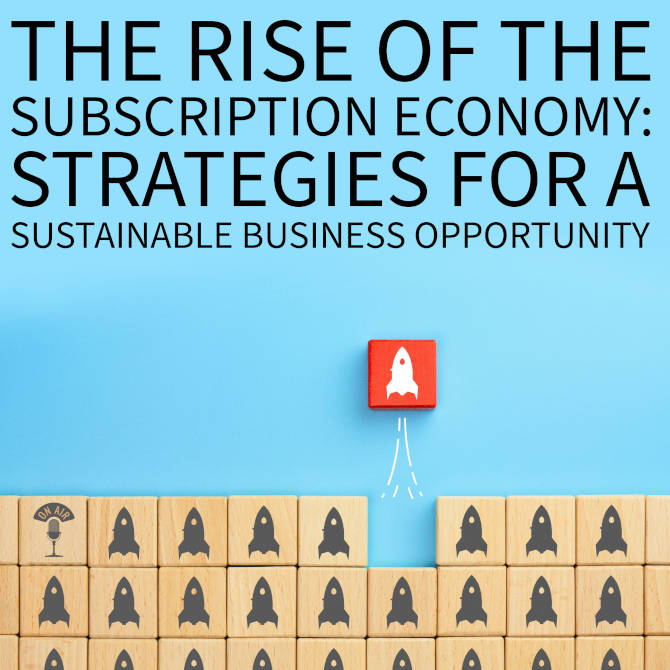Introduction: The Journey to Startup Success
I was looking for ideas on what to make today’s podcast on and there’s this great research tool in YouTube’s channel analytics where you can start typing and then it automatically starts showing you what is a highly searched topic or phrase. So I started typing how to. And as I typed, it showed the most popular search terms.
The Timeless Wisdom of Napoleon Hill
The top three were based on a film called How to Train Your Dragon, which I have absolutely no idea what that is about. But sitting in fifth place was Napoleon Hill’s book Think and Grow Rich. And I thought to myself, it’s amazing to think that a book that was written in 1937 is equally, or if not more, popular now than it was back then.
The Influence of a Mentor: My Journey with Gavin Bain
This started to make me think back to when I was in my late teens and early 20s. I was given the book by a chap called Gavin Bain. He actually became my mentor and was an incredible entrepreneur. The few years I spent being mentored by Gavin had an incredible impact on my life and I still reflect many business decisions on his mentorship.
For me, he was the epitome of being a founder for startup businesses. So I think it would be good to discuss unlocking the secrets of becoming a successful startup founder.
Shall we start?
Deciding If a Startup Is Right for You
Over the years, I’ve hung out with loads of people who are on the fence about starting their own company, and I’ve helped many of them and closest friends and family members with their decisions.
Assessing Startup Suitability: A Reality Check
So, if you’re someone who’s feeling a little unsure about diving into the startup world, then this episode I think is really aimed at you.
I think we should really start by figuring out if a startup is really the right move for you. As Napoleon Hill once said, a goal is a dream with a deadline. And it’s important to make sure that your dreams and goals align with what it takes to succeed being a startup founder. Without a doubt, it’s really tough to know whether your idea is the right idea.
You’re not alone on that side. As someone who’s worked with a ton of startup founders over the years, I’ve seen firsthand how different people react to unique challenges and opportunities. But like myself, some people thrive in an ever-changing environment while others might struggle to adapt.
So as we go through this episode, we’ll explore what it takes to succeed as a startup founder and help you figure out if this is the path you want to take or not. So let’s start turning your dreams into a reality with clear deadlines.
Busting Startup Myths: Realities of Entrepreneurship
I think one of the big misconceptions is people will watch a film or read a book on startups and actually believe that that’s the way startups happen.
Sadly, a lot of that is fantasy and very misleading, really. You know, sometimes these films depict that you have to be a cutthroat entrepreneur or mastermind or a coding prodigy to succeed in the startup world. That’s not the case at all. I wouldn’t classify myself as a cutthroat entrepreneur or mastermind.
Pretty good at coding, mind you. In fact, there are tons of different personality types and skill sets that can lead to success as a startup founder. You know, we have to root into our sort of depths of what we’ve learned over the years and, and utilise that information.
Essential Traits for Startup Founders
So whether you’re a natural-born leader, a creative thinker, a financial wizard, or even just a passionate problem solver.
There’s a place for you in the startup game. The key is to find your unique strengths and figure out how to harness them to achieve your goals. I think another sort of misconception is that a startup is like working on a project for someone else. But it’s not, it’s your baby, your brainchild. And it’s going to be part of you in a way that nothing else is.
That’s why it takes a special kind of resilience and determination to keep going when things get tough. You know, as I said earlier, I’ve, I’ve met a lot of people and a lot of startup founders and they have various qualities. Especially those who I’ve seen who have made it big, you know, you’ve got to have passion, you need to be all in on the idea and willing to put in hard work, long hours, uh, very much required to make it happen. And then we’ve got the resilience. This is absolutely key. And let’s Be real for a moment.
The Importance of Resilience and Adaptability
Startups are tough and you’re going to face a lot of rejection and setbacks, but you’ve got to be able to bounce back from those and keep on pushing forward.
You’ve also got to have a form of flexibility and that’s extremely important. You know, startups require a lot of pivoting and adjusting as you learn from your customers and the market. You need to be able to roll with the punches and basically change course when necessary. And don’t forget about creativity.
Startups often require a zeitgeist attitude, which is an out of box idea to problems, whether it’s coming up with unique products or figuring out how to make it on a shoestring budget. And a lot of us do start on shoestring budgets. And one thing you really do need is serious leadership skills. As a startup founder, you’re going to be responsible for leading your team and making those tough decisions.
You need to be able to inspire and motivate your team, even when things get absolutely crazy. So I suppose if you feel that you have a lot of those traits, then I would say go for it. But you must remember, there’s no guarantee of success, and even the best founders fail. So be prepared for hard work and uncertainty that comes with starting a company.
But I think it’s that uncertainty that actually, it’s, it’s like gambling. You get excited because you don’t know what’s going to happen. You don’t know what tomorrow’s gonna be. I mentioned that you need, you know, resilience. I met these two guys way back, Mike and Andrew, two founders I worked with who showed some real serious grit.
When they first pitched their idea to me, I must admit, I thought it was a pretty ambitious undertaking. But these two really proved me wrong. They navigated all the obstacles of building an extremely complex product and then attracting users and raising funds, all while keeping their eye on the final goal.
Here’s the thing though, confidence isn’t always a reliable indicator of resilience. You might think you’re the toughest cookie in the jar, but until you’ve been through the startup life, you really can’t know for sure. That’s why
I’m always recommending trying it out for yourself. Work on a side project or join a startup in a junior role to see what it’s really like.
You need to get a taste of the long hours, the rejection, and the uncertainty that comes with startup life. If you find that you enjoy the challenge and are willing to keep going, even when things get tough, then you might just have what it takes to be a successful startup founder. I remember when I was in Bitcoin Cash and… My hours were, it seemed, like 24 hours a day. My phone was ringing at 3 o’clock in the morning. It was a massive stress on my relationship.
Finding the Right Co-Founder
It’s hard to predict which founders will have the resilience to succeed. There’s no book or, or mirror that will say, yes, you’re going to succeed.
It’s not just about confidence in being a tech wizard, although those can certainly help. To me, it’s more about having a deep passion for your idea and being willing to do whatever it takes to make it a reality. If you’ve got fire in your belly, then there’s no telling what you can actually achieve as a startup founder.
Feedback and Criticism: Keys to Improvement
One of the most important skills for startup founders is to have the ability to take feedback and criticism. You know, you’re gonna get a lot of it from customers, investors, and mentors. I can be incredibly critical of some of the businesses when I don’t feel they’ve structured or thought out the process correctly.
So being able to take that feedback and use it to improve your product or approach really is a game changer. Another thing I always look for in founders is the ability to keep an eye on the prize itself.
The Journey from Motivation to Resilience
It’s easy to get bogged down in the day-to-day details of running a startup, but the most successful founders are the ones that stay focused on that big picture and keep their motivation levels up, even when progress is slow.
So I’ve sort of mentioned that resilience is absolutely key for a startup founder, but it’s not something that’s easy to measure or predict. To make it through the inevitable challenges, you need to have a deep motivation that goes beyond just money or satisfying curiosity. You need to have a real passion for your idea and a strong sense of purpose that drives you to keep going.
As I said, even when things get tough, and they do get tough sometimes, so on the motivational side, while financial gain can be a big driver for some startup founders, I’ve seen a lot of people shift their focus over time as they get more involved in their company and start seeing the impacts they have on their customers in the world.
Suddenly, it’s not just about the money then. It’s about the passion they have for their products and the problems they’re solving. The passion is what keeps them going through all the ups and downs of startup life. But here’s the thing, while your initial motivation for starting a startup might not matter as much as your ability to be resilient, it’s important to have a deep sense of purpose that will keep you motivated over the long term, whether you’re driven by a desire to make real impact or a passion for a particular technology, even a commitment to solving a specific problem.
Having a strong sense of what you’re doing is absolutely critical. I’ve said that it’s a risky endeavour to start a company. It’s important to be realistic about the potential upsides. That being said, if you’ve got a passion and resilience to see it through, then it might just be worth taking the leap.
Start working on your idea. Obviously, do some market research, build a prototype to talk to potential customers. Just start taking action and gathering data as soon as possible. That way you can make informed decisions about whether to keep pursuing your idea or If it’s in a slightly different direction, when it comes to starting a company, having a strong team behind you is also key.
You need people who share your passion and commitment to ideas, whether it’s co-founders, advisors, and mentors. They’ll all help you navigate the sort of challenges of startup life and keep you motivated when things get tough. You know, I suppose you could ask the question of what happens if your startup doesn’t end up succeeding.
Don’t worry. There are still plenty of benefits to be had. For one, the experience you gain from starting a company can be incredibly valuable for your career. It can help you figure out your strengths, what kind of work you enjoy, and what kind of company culture you thrive in. Plus, it makes you a more attractive candidate for future job opportunities, whether at a startup or a more established company.
You see, companies are now looking for people with entrepreneurial spirits. Years ago, they would not accept people that keep on starting new companies and the likes. You may not be quite ready to take the plunge just yet, but have dreams of starting your own company in the future. So don’t worry, there’s things that you can do to prepare yourself.
First of all, it’s a great idea to build up your skills. Think about what skills would be valuable in a startup world, like coding, marketing, sales, or product development, and start learning those. Really spend all your time, study, study, study, study, because the more skills you have, the better equipped you’ll be to handle all the different tasks that come with starting a company.
You know, you really have to have your fingers in all parts of your business. So having an understanding of all parts is incredibly important. One thing that Gavin Bain was absolutely amazing at was networking, and he would attend every event, and that’s something we need to follow. We need to attend, say, every startup event, join online communities, and reach out to people on LinkedIn.
Building a strong network will help you find potential co-founders, advisors, and even mentors. And when you’re ready to start your own company, they’ll be there already.
Preparing for the Startup Leap
If you really want to dive in headfirst, consider getting some experience by working at a startup or in a startup like environment.
This will give you the opportunity to learn from others and understand what it’s really like to work in a startup. And if you’re having difficulty in finding a potential co-founder, try reaching out to your network, who may share similar interests or in the same industry, because you need to brainstorm together to see if you can come up with an idea that is worth pursuing.
Having said that, finding a co-founder is definitely an important step, but whatever you do, don’t rush into it. Take the time to get to know potential co-founders and make sure you share similar values and work styles. Look for people who complement your skill set and have a track record of getting things done.
Legalities and Agreements: Ensuring a Smooth Partnership
You may start working on a side project. It’s important to remember that not every idea will turn into a successful start-up. In fact, most won’t, but that’s okay. As Napoleon Hill once said, Every adversity carries with it the seed of an equal or greater benefit. If your side project doesn’t turn into a fully-fledged company, the skills and knowledge you’ve gained from working on it still are incredibly valuable for your career.
There’s one way you can judge the potential of your side projects as a startup, is to look for deep reactions from early users. If your project elicits a passionate response from someone, the kind where you can legitimately say that they’re doing something very different as a result of your product’s existence.
Then you may be onto something. A single, passionate user of your, maybe crude prototype, that was hacked together in a weekend means so much more than a million signups for something that doesn’t exist yet. So if you were to focus on turning your side project into reality and you find yourself energised and constantly learning new things while working on this side project, that’s a really good sign and it might be time to quit your day job and focus on your own idea.
It’s important to consider how much you enjoy working on your side project. If you have great co-founders who want to start a company with you, that’s a rare and fantastic reason to take the leap and start your own company. as Zig Ziglar once said, Your attitude, not your aptitude, will determine your altitude.
Don’t worry too much about your initial motivation or reason to start a company. Those can change over time and they do. Just be curious about the experience of starting a startup and be sure you’re prepared for the worst-case scenario. The thing is when you do find a co-founder and you start your business, make sure you have good legal documentation between both of you.
And because sometimes you find that relationships crumble or the co-founder doesn’t follow through with your specific goal and you have to go your own separate ways at some time. So it’s very important to have it all set out in agreement. As the saying goes.. don’t get Into bed with the devil..
This is sometimes why it’s quite good to start on a side project because that will actually determine whether the co-founder is still in agreement and you’re both doing things as a side project. So on that basis, I say absolutely go for it. And the thrill of turning an idea into reality is oh, so worth it. I absolutely love doing that.
Conclusion: Embarking on Your Startup Adventure
Anyway, I hope you’ve enjoyed today’s episode. Remember to click the follow, like, subscribe, and all of that kind of business. And remember, as Zig Ziglar also said, You don’t have to be great… What did he say? You don’t have to be great to start, but you have to start to be great. Bye bye now.











